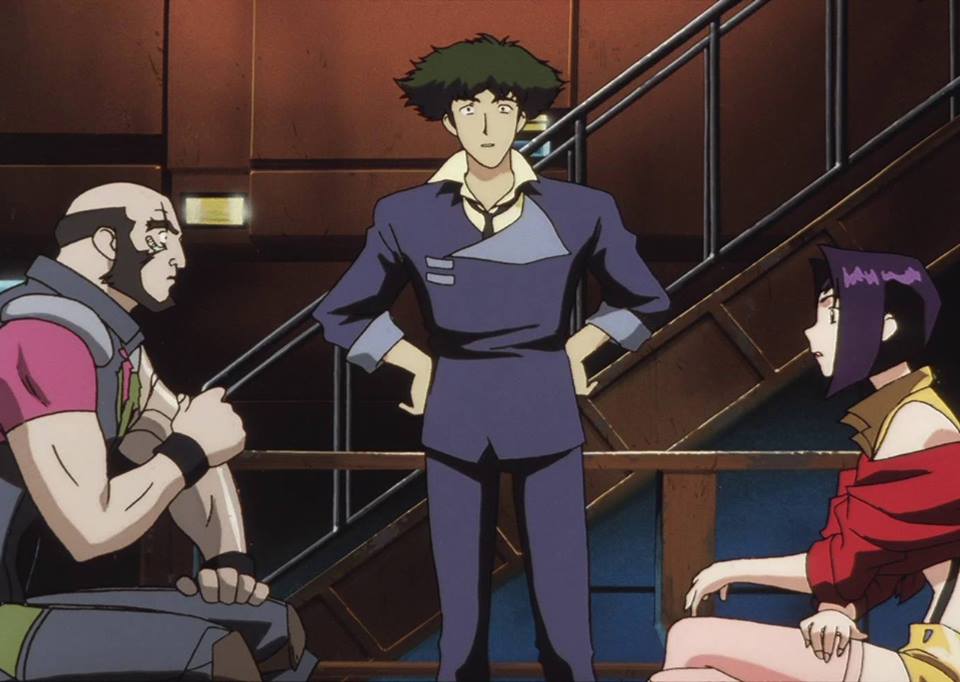|
COWBOY BEBOP marks one of the first instances of an anime gaining widespread popularity among Western audiences. Focusing on the misadventures of a ragtag crew of interplanetary bounty hunters, each episode takes cues from different genres, from film noir to westerns, from comedy to drama. It is COWBOY BEBOP’S adeptness at balancing so many different elements that is part of its critical success. The most crucial example of this comes within the show’s first minute, in which the trajectory of protagonist Spike Spiegel's (Kōichi Yamadera) character is subtly foreshadowed. A sombre tune plays as Spike solemnly walks through the rain, brief snippets of his tragic past flashing by on screen, and then… the jazzy opening theme tune suddenly blares, accompanied by a colourful title sequence. At first, the tonal shift is jarring, but as the show progresses it becomes apparent just how apt this opening scene is.
The ever-aloof Spike is a character desperate to filter out reality. Any attempts at sincerity are usually undermined by a quip. On a particularly dangerous mission, he notes “maybe this one really will be the end of me…”, before following it up with a “just kidding!”. His suave exterior belies a lonely man running from his past. This is precisely what the first episode’s cold opening represents: the tone established by the sombre flashbacks is subverted by the bombast of the opening theme. This moment is Spike in a microcosm, showing glimpses of poignancy before returning to a faux-cool demeanour. Fellow crewmates Jet Black (Unshō Ishizuka) and Faye Valentine (Megumi Hayashibara) are similar in their hesitation to open up to others. The crew often reduce bounties to the numbers on their heads rather than seeing them as actual people with issues. Even Jet, the most empathetic of the crew, often falls victim to callousness; the show notes his ruthlessness in tracking down the partner of his ex-girlfriend for shooting a man in self-defence. The Bebop crew are not incapable of compassion, but overall avoid forming attachments to people, focusing mainly on making enough money to keep going. The centre of their realities is, first and foremost, themselves. It is the final member of the crew, Radical Edward (Aoi Tada), that challenges this trend. Feeling no need for pretence, Edward wears her heart on her sleeve. She is manic and eccentric throughout. It would be remiss to dismiss her as the mere comic relief of the show as her sincerity distinguishes her from the rest of the crew. She may seem to inhabit her own world most of the time but, by refusing to put up an emotional barrier to others around her, she is ultimately truer to both herself and to reality than her crewmates. As the series draws to a close, she follows Faye’s advice to “find somewhere you belong”. This “somewhere” proves not to be with the disingenuous inhabitants of the Bebop and she leaves, taking the initiative to find her own path in life. It is this initiative that spares Ed from the bloodshed and tragedy of the two-part finale in which Spike’s refusal to confront his past comes back to haunt him. COWBOY BEBOP frequently depicts reality as a painful and cruel place but argues shutting ourselves off to this fact will only aggravate matters. Perhaps the most vital lesson, and the one the characters learn all too late, is that life Is too short and too painful for apathy or solitude. More short reads about REALITY >>> |


